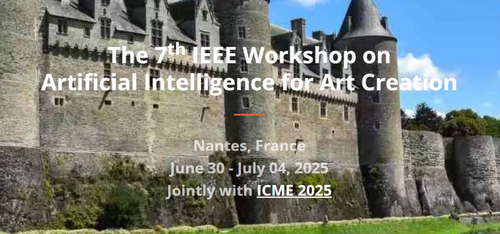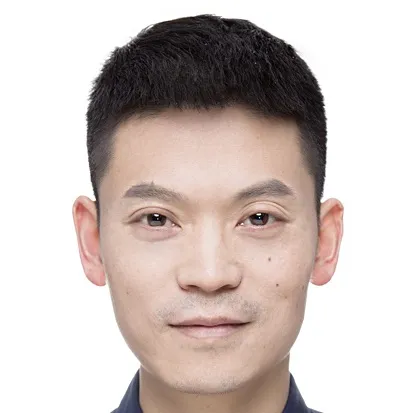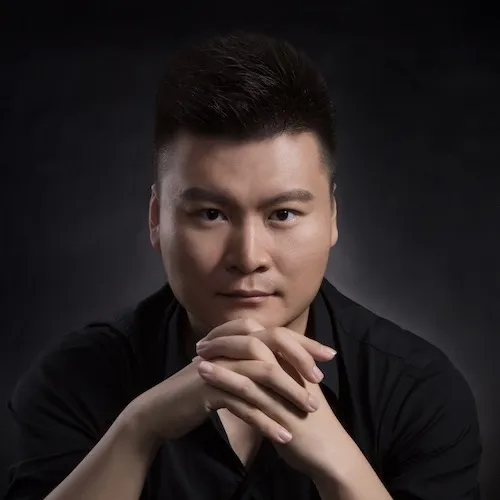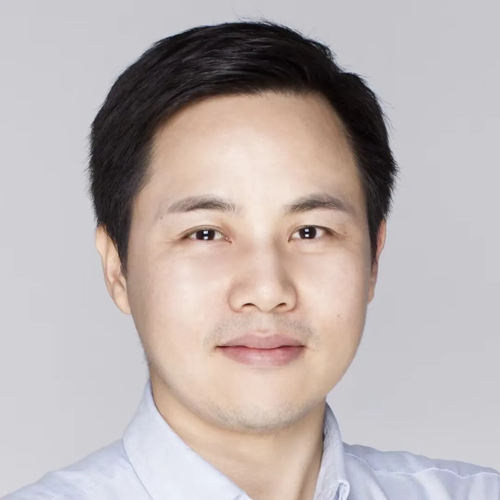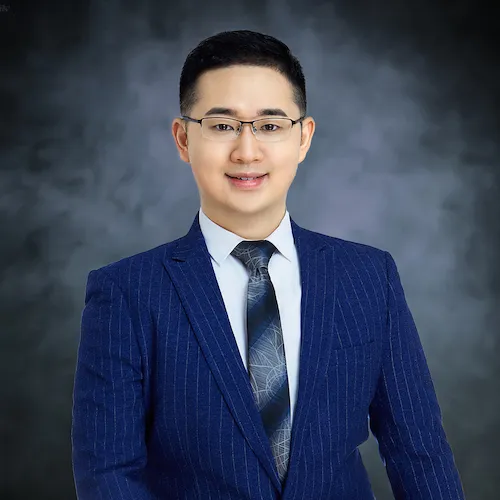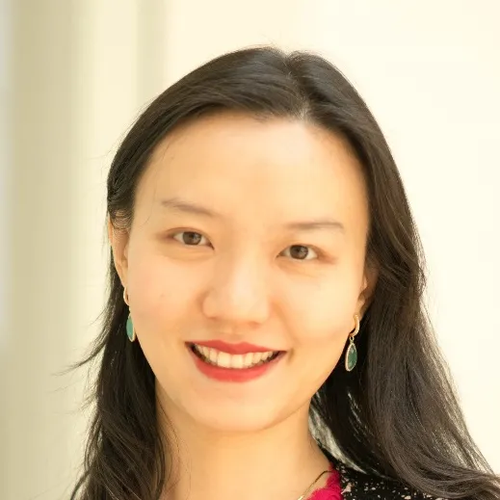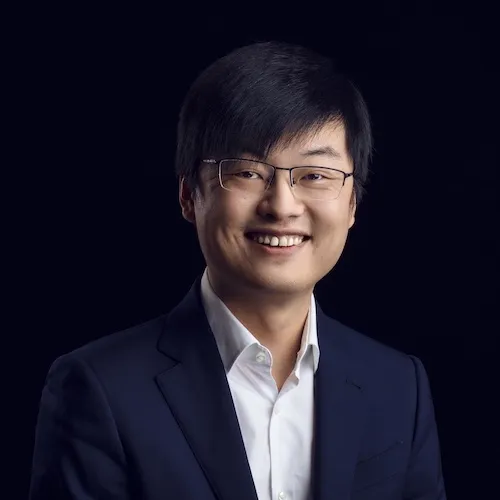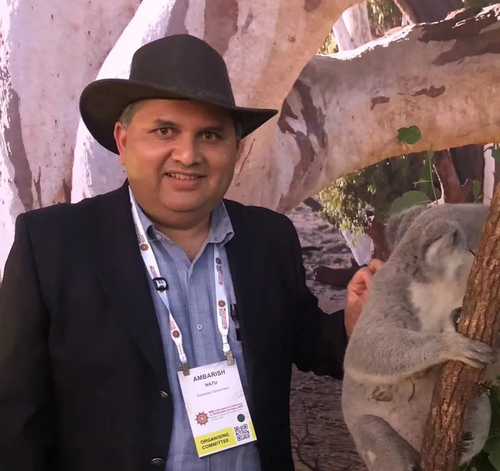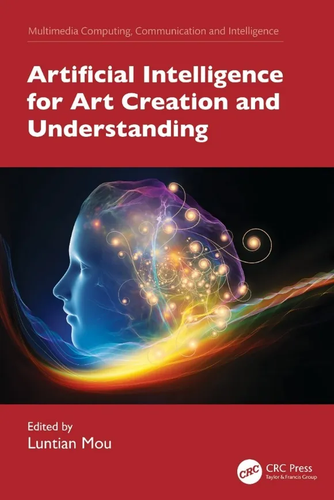AIART 2025 Call for Papers
AIART 2025 Call for Papers
2025年03月03日 22:11 北京
AIART 2025 Call for Papers
The 7th IEEE Workshop on
Artificial Intelligence for Art Creation
Overview
Recent advances brought by AI-Generated Content (AIGC) have been an innovative engine for digital content generation, drawing more and more attention from both academia and industry. Across creative fields, AI has sparked new genres and experimentations in painting, music, film, storytelling, fashion and design. Researchers explore the concept of co-creation with AI systems as well as the ethical implications of AI generated images and texts. AI has been applied to art historical research and media studies. The aesthetic value of AI generated content and AI’s impact on art appreciation have also been a contended subject in recent scholarship. AI has not only exhibited creative potential, but also stimulated research from diverse perspectives of neuroscience, cognitive science, psychology, literature, art history, media and communication studies. Despite all these promising features of AI for Art, we still have to face the many challenges such as the biases in AI models, lack of transparency and explainability in algorithms, and copyright issues of training data and AI art works.
This is the 7th AIART workshop to be held in conjunction with ICME 2025 in Nantes, France, and it aims to bring forward cutting-edge technologies and most recent advances in the area of AI art as well as perspectives from neuroscience, cognitive science, psychology, literature, art history, media and communication studies.
The theme topic of AIART 2025: AI and Human Co-creativity. We plan to invite 5 keynote speakers to present their insightful perspectives on AI art.
Topics
We sincerely invite high-quality papers presenting or addressing issues related to AI art, including but not limited to the following topics:
Affective computing for AI Art
AI in media studies
AI, literature, and art
AI and social justice
Theory and practice of AI creativity
Neuroscience, cognitive science and psychology for AI Art
AI Art for metaverse
AI for painting generation
AI for 3D content generation
AI for video and movie
AI for cultural heritage
AI for sound synthesis, music composition, performance, and instrument design
AI for poem composing and synthesis
AI for typography and graphic design
AI for fashion, makeup, and virtual hosting
AI for multimodal and cross-modal art generation
AI for art style transfer
AI for aesthetics understanding, analysis, assessment and prediction
Authentication and copyright issues of AI artworks
Additionally, Best Paper Award will be given.
AIART 2025 is also launching a demo track for artists to showcase their creative artworks in the form of in-person art gallery. The demo track will provide a great opportunity for people to experience interactive artworks and communicate creative ideas. The submission guideline for the demo track follows that of the main ICME conference: https://2025.ieeeicme.org/author-information-and-submission-instructions/.
Submission
Authors should prepare their manuscript according to the Guide for Authors of ICME available at Author Information and Submission Instructions: https://2025.ieeeicme.org/author-information-and-submission-instructions/
Submission address:https://cmt3.research.microsoft.com/ICMEW2025
Important Dates
Submissions due:April 1st, 2025
Workshop date:During June 30- July 4
Homepage
https://aiart-2025.github.io/
Technical Program Committee
Please check the homepage for the full list of TPC members.
Organizing Team
Luntian Mou
Beijing University of Technology
Beijing, China
ltmou@bjut.edu.cn
Dr. Luntian Mou is an Associate Professor with the School of Information Science and Technology, Beijing University of Technology, and also with Beijing Institute of Artificial Intelligence (BIAI). He received the Ph.D. degree in computer science from the University of Chinese Academy of Sciences, China in 2012. He served as a Postdoctoral Fellow at Peking University, from 2012 to 2014. And he was a Visiting Scholar with the University of California, Irvine, from 2019 to 2020. He initiated the IEEE Workshop on Artificial Intelligence for Art Creation (AIART) in 2019, and published a book titled Artificial Intelligence for Art Creation and Understanding in 2024. His current research interests include artificial intelligence, machine learning, multimedia computing, affective computing, and brain-like computing. He is the recipient of Beijing Municipal Science and Technology Advancement Award, and the recipient of China Highway Society Technology Invention Award, IEEE Outstanding Contribution to Standardization Award, and AVS Outstanding Contribution on 15th Anniversary Award. He serves as a Guest Editor for Machine Intelligence Research, and a Reviewer for many important international journals and conferences such as TIP, TAFFC, TMM, TCSVT, TITS, CVPR, AAAI, etc. And he serves as a Co-Chair of System subgroup in AVS workgroup. He is a Senior Member of IEEE, CCF, and CSIG, and a Member of ACM, and CAAI, and an Expert of MPEG China.
Feng Gao
Peking University
Beijing, China
gaof@pku.edu.cn
Dr. Feng Gao is an Assistant Professor with the School of Arts, Peking University. He has long researched in the disciplinary fields of AI and art, especially in AI painting. He co-initiated the international workshop of AIART. Currently, he is also enthusiastic in virtual human. He has demonstrated his AI painting system, called Daozi, in several workshops and drawn much attention.
Kejun Zhang
Zhejiang University
Hangzhou, China
zhangkejun@zju.edu.cn
Dr. Kejun Zhang is a Professor with Zhejiang University, joint PhD supervisor on Design and Computer Science, Dean of Department of Industrial Design at College of Computer Science of Zhejiang University. He received his PhD degree from College of Computer Science and Technology, Zhejiang University in 2010. From 2008 to 2009, He was a visiting research scholar of University of Illinois at Urbana-Champaign, USA. In June 2013, he became a faculty of the College of Computer Science and Technology at Zhejiang University. His current research interests include Affective Computing,Design Science, Artificial Intelligence, Multimedia Computing and the understanding, modelling and innovation design of products and social management by computational means. He is now the PI of National Science Foundation of China, Co-PI of National Key Research and Development Program of China, and PIs of ten more other research programs. He has authored 4 books, more than 40 scientific papers.
Zeyu Wang
Hong Kong University of Science and
Technology (Guangzhou)
Guangzhou, China
zeyuwang@ust.hk
Dr. Zeyu Wang is an Assistant Professor of Computational Media and Arts (CMA) in the Information Hub at the Hong Kong University of Science and Technology (Guangzhou) and an Affiliate Assistant Professor in the Department of Computer Science and Engineering at the Hong Kong University of Science and Technology. He received a PhD from the Department of Computer Science at Yale University and a BS from the School of Artificial Intelligence at Peking University. He leads the Creative Intelligence and Synergy (CIS) Lab at HKUST(GZ) to study the intersection of Computer Graphics, Human-Computer Interaction, and Artificial Intelligence, with a focus on algorithms and systems for digital content creation. His current research topics include sketching, VR/AR/XR, and generative techniques, with applications in art, design, perception, and cultural heritage. His work has been recognized by an Adobe Research Fellowship, a Franke Interdisciplinary Research Fellowship, a Best Paper Award, and a Best Demo Honorable Mention Award.
Gerui Wang
Stanford University
California, USA
grwang@stanford.edu
Dr. Gerui Wang is a Lecturer at Stanford University Center for East Asian Studies, where she teaches classes on contemporary art, AI and posthumanism. Her research interests span arts, public policy, environment, and emerging technologies. She is a member of the Alan Turing Institute AI&Arts Research Group. With her background in art history, she has published in the Journal of Chinese History and Newsletter for International China Studies. Gerui's book Sustaining Landscapes: Governance and Ecology in Chinese Visual Culture is forthcoming in 2025. Her research briefs on AI, robotics, media, and society are frequently featured in public venues including Forbes, Alan Turing Institute's AI and Art Forum, Asia Times, and South China Morning Post. Gerui holds a doctorate in art history from the University of Michigan.
Ling Fan
Tongji University Design Artificial Intelligence Lab
Shanghai, China
lfan@tongji.edu.cn
Dr. Ling Fan is a Scholar and Entrepreneur to bridge machine intelligence with creativity. He is the founding chair and professor of Tongji University Design Artificial Intelligence Lab. Before, he held teaching position at the University of California at Berkeley and China Central Academy of Fine Arts. Dr. Fan co-founded Tezign.com, a leading technology start-up with the mission to build digital infrastructure for creative contents. Tezign is backed by top VCs like Sequoia Capital and Hearst Ventures. Dr. Fan is a World Economic Forum Young Global Leader, an Aspen Institute China Fellow, and Youth Committee member at the Future Forum. He is also a member of IEEE Global Council for Extended Intelligence. Dr. Fan received his doctoral degree from Harvard University and master's degree from Princeton University. He recently published From Universality of Computation to the Universality of Imagination, a book on how machine intelligence would influence human creativity.
Nick Bryan-Kinns
University of the Arts London
London, UK
n.bryankinns@arts.ac.uk
Dr. Nick Bryan-Kinns is a Professor of Creative Computing at the Creative Computing Institute, University of the Arts London. His research explores new approaches to interactive technologies for the Arts and the Creative Industries through Creative Computing. His current focus is on Human-Centered AI and eXplainable AI for the Arts. His research has made audio engineering more accessible and inclusive, championed the design of sustainable and ethical IoT and wearables, and engaged rural and urban communities with physical computing through craft and cultural heritage. Products of his research have been exhibited internationally including Ars Electronica (Austria) the V&A and the Science Museum (UK), made available online and as smartphone apps, used by artists and musicians in performances and art installations, and have been reported in public media outlets including the BBC and New Scientist. He is a Fellow of the Royal Society of Arts, Fellow of the British Computer Society (BCS), and Senior Member of the Association of Computing Machinery (ACM). He is a recipient of the ACM and BCS Recognition of Service Awards, and chaired the ACM Creativity and Cognition conference 2009, and the BCS international HCI conference 2006.
Ambarish Natu
Australian Government
Australian Capital Territory, Australia
ambarish.natu@gmail.com
Dr. Ambarish Natu is with the Australian Government. After graduating from University of New South Wales, Sydney, Ambarish has held positions as a visiting researcher in Italy and Taiwan, worked for industry in United Kingdom and the United States of America and for the past ten years has been working in the Australian Government. For the past 17 years, Ambarish has led the development of five international standards under the auspices of the International Standards Organization (ISO) popularly known as JPEG (Joint Photographic Experts Group). He is the recipient of the ISO/IEC certificate for contributions to technology standards. Ambarish is highly active in the area of international standardization and voicing Australian concerns in the area of JPEG and MPEG (Motion Pictures Experts Group) standardization. He previously initiated an effort in the area of standardization relating to Privacy and Security in the Multimedia Context both within JPEG and MPEG standard bodies. In 2015, Ambarish was the recipient of the prestigious Neville Thiele Award and the Canberra Professional Engineer of the Year by Engineers Australia. Ambarish currently works as an ICT Specialist for the Australian Government. Ambarish is a Fellow of the Australian Computer Society and Engineers Australia. Ambarish also serves on the IVMSP TC and the Autonomous Systems Initiative of the IEEE Signal Processing Society. Ambarish has also been General Chair of DICTA 2018, ICME 2023 and TENSYMP 2023 in the past. Ambarish has keen interest in next generation data and analytics technologies that will change the course of the way we interact with in the world.
Partner1:
Association d'intelligence Artificielle France-Chine
L’association d'Intelligence Artificielle France-Chine (AIFC), headquartered in Paris, is a professional organization dedicated to fostering in-depth collaboration between France and China in the field of artificial intelligence. By establishing a multidimensional platform that integrates research, investment, industry, and education, AIFC aims to create a comprehensive ecosystem that bridges academia and industry.
Partner2:
Machine Intelligence Research
Machine Intelligence Research (original title: International Journal of Automation and Computing), published by Springer, and sponsored by Institute of Automation, Chinese Academy of Sciences, is formally released in 2022. The journal publishes high-quality papers on original theoretical and experimental research, targets special issues on emerging topics and specific subjects, and strives to bridge the gap between theoretical research and practical applications. The journal has been indexed by ESCI, EI, Scopus, CSCD, etc.
Impact Factor=6.4, JCR Q1
MIR official websites:
https://www.springer.com/journal/11633
https://www.mi-research.net
MIR Editor-in-Chief - Tan Tieniu, Institute of Automation, Chinese Academy of Sciences
MIR Associate Editors-in-Chief
Liang Wang, Chinese Academy of Sciences, China
Yike Guo, Imperial College London, UK
Brian C. Lovell, The University of Queensland, Australia
Call For Sponsorship
Platinum Level (RMB¥100,000)
- Large booths (size TBD)
- Invitation to give an industry keynote
speech
- Logo on AIART 2024 official website with description and
link to sponsor website
- Logo on workshop handbook and
presentation material (under Platinum Level)
- One on one
negotiation for special requirements.
Gold Level (RMB¥50,000)
- Medium booths (size TBD)
- Participation in related industry
panel
- Logo on AIART 2024 official website with short description
and link to sponsor website
- Logo on workshop handbook and
presentation material (under Gold Level)
- One on one negotiation
for special requirements.
Silver Level (RMB¥20,000)
- Small booths (size TBD)
- Logo on AIART 2024 official website with
link to sponsor website
- Logo on workshop handbook and
presentation material (under Silver Level)
Book
Artificial Intelligence for Art Creation and Understanding
Edited By Luntian Mou
eBook Published: 29 August 2024
Imprint: CRC
Press
DOI: https://doi.org/10.1201/9781003406273
ABSTRACT
AI-Generated Content (AIGC) is a revolutionary engine for digital content generation. In the area of art, AI has achieved remarkable advancements. AI is capable of not only creating paintings or music comparable to human masterpieces, but it also understands and appreciates artwork. For professionals and amateurs, AI is an enabling tool and an opportunity to enjoy a new world of art.
This book aims to present the state-of-the-art AI technologies for art creation, understanding, and evaluation. The contents include a survey on cross-modal generation of visual and auditory content, explainable AI and music, AI-enabled robotic theater for Chinese folk art, AI for ancient Chinese music restoration and reproduction, AI for brainwave opera, artistic text style transfer, data-driven automatic choreography, Human-AI collaborative sketching, personalized music recommendation and generation based on emotion and memory (MemoMusic), understanding music and emotion from the brain, music question answering, emotional quality evaluation for generated music, and AI for image aesthetic evaluation.
The key features of the book are as follows:
·AI for Art is a fascinating cross-disciplinary field for the academic community as well as the public.
·Each chapter is an independent interesting topic, which provides an entry for corresponding readers.
·It presents SOTA AI technologies for art creation and understanding.
·The artistry and appreciation of the book is wide-ranging – for example, the combination of AI with traditional Chinese art.
This book is dedicated to the international cross-disciplinary AI Art community: professors, students, researchers, and engineers from AI (machine learning, computer vision, multimedia computing, affective computing, robotics, etc.), art (painting, music, dance, fashion, design, etc.), cognitive science, and psychology. General audiences can also benefit from this book.
Purchase Links:
·https://www.amazon.com/Artificial-Intelligence-Understanding-Multimedia-Communication/dp/1032523603
· https://www.routledge.com/Artificial-Intelligence-for-Art-Creation-and-Understanding/Mou/p/book/9781032523606
· https://item.jd.com/10112811679589.html
· https://product.dangdang.com/11804604409.html
History
·AIART 2024: https://aiart2024.github.io/, Niagra Falls, Canada, with ICME 2024
·AIART 2023: https://aiart2023.github.io/,Brisbane, Australia, with ICME 2023
·AIART 2022: https://aiart2022.github.io/, online, with ICME 2022
·AIART 2021: https://aiart2021.github.io/, online, with MIPR 2021
·AIART 2020: https://aiart2020.github.io/, online, with MIPR 2020
·AIART 2019: https://aiart2019.github.io/, San Jose, USA, with MIPR 2019


